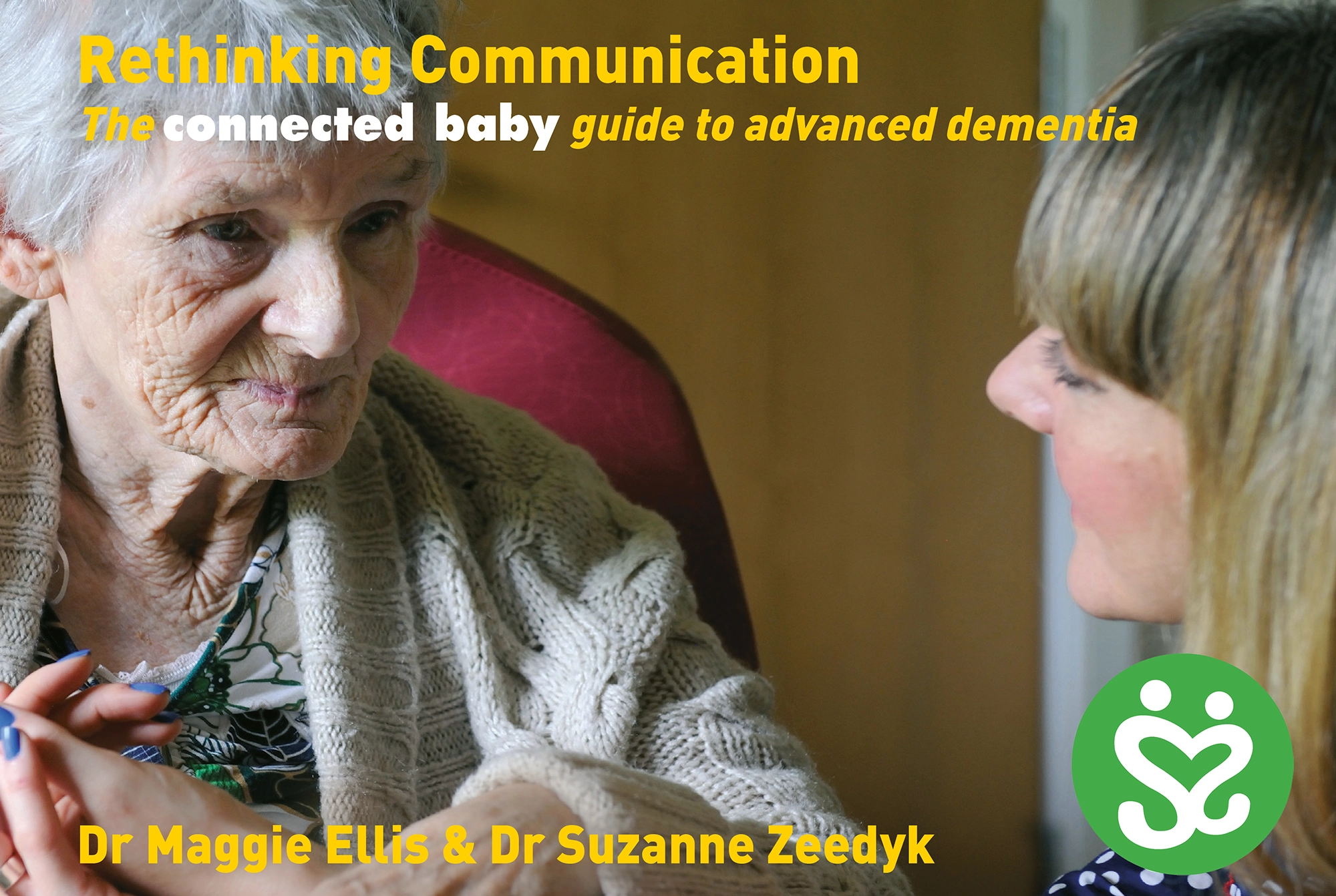It is common to believe that dementia can progress so far that it makes it almost impossible to ‘find’ the person inside. It can seem as if they have disappeared entirely into their illness. Science is now helping us to understand that is not true. Rethinking Communication helps readers to understand what the science is telling us.
Co-author Dr Maggie Ellis is a specialist in advanced dementia. Based at the University of St Andrews in the School of Psychology and Neuroscience, she has done cutting-edge research on Adaptive Interaction, an approach that demonstrates how communicative human beings remain throughout their lifetime. The guide explains why the approach of Adaptive Interaction is effective even in the advanced stages of dementia.
Suzanne has been proud to co-author this very accessible book with Maggie. Their partnership on this project reflects the fascination they both share with the core communicative capacities of human beings.

